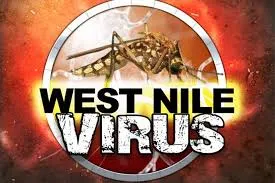The Wayne County Health Department announced Monday that Illinois’ first human case of West Nile Virus (WNV) in 2025 has been confirmed in a Wayne County resident.
According to the Centers for Disease Control and Prevention (CDC), the individual was hospitalized due to complications from the virus but has since been discharged and is recovering at home.
West Nile virus is transmitted to humans through the bite of an infected Culex mosquito, which contracts the virus by feeding on infected birds. Most individuals show no symptoms, but those who do may experience fever, nausea, headaches, and muscle aches lasting days or weeks. In rare instances, WNV can cause severe neurological conditions such as meningitis, encephalitis, paralysis, or even death. The elderly and individuals with weakened immune systems are at highest risk for serious illness.
So far in 2025, 19 counties in Illinois have reported WNV activity through positive mosquito, horse, or human cases. These include: Bureau, Christian, Clinton, Cook, DeKalb, DuPage, Fulton, Grundy, Hancock, Henry, Marshall, McDonough, McHenry, Peoria, Scott, Stark, Tazewell, Wayne, and Winnebago. In 2024, the state recorded 69 human cases of WNV, including 13 deaths, the most since 2018.
“The fact that we are seeing the first human case of West Nile virus so early in the season serves as a timely reminder—especially for seniors and those with weakened immune systems—to protect yourself from illnesses caused by mosquito bites,” said IDPH Director Dr. Sameer Vohra. “I encourage all Illinoisans to ‘Fight the Bite’ and take precautions to protect themselves and their loved ones.”
IDPH Offers the Public Three Key Prevention Steps: Reduce, Repel, and Report
REDUCE exposure by avoiding the outdoors during peak mosquito activity (dusk to dawn), fixing damaged screens, and eliminating standing water around homes.
REPEL mosquitoes using EPA-registered insect repellents that contain DEET, picaridin, oil of lemon eucalyptus, or IR3535. Wear long sleeves and pants when outdoors.
REPORT potential mosquito breeding sites such as stagnant water in ditches, containers, or flooded yards to local municipal authorities.
The Illinois Department of Public Health (IDPH) is providing $2.8 million in funding to local health departments across the state to support mosquito control efforts, including larvicide application, vector surveillance, and public education campaigns.
For more information about West Nile virus, visit the Illinois Department of Public Health’s website at:
📍 www.idph.state.il.us/envhealth/wnv.htm
